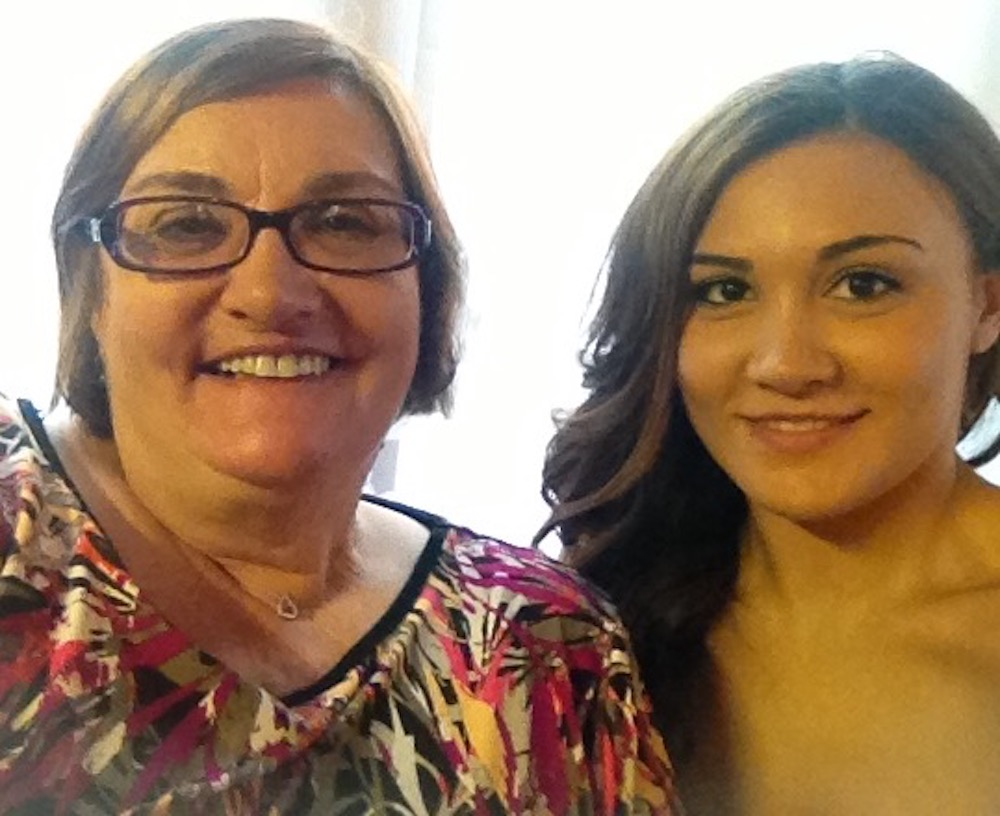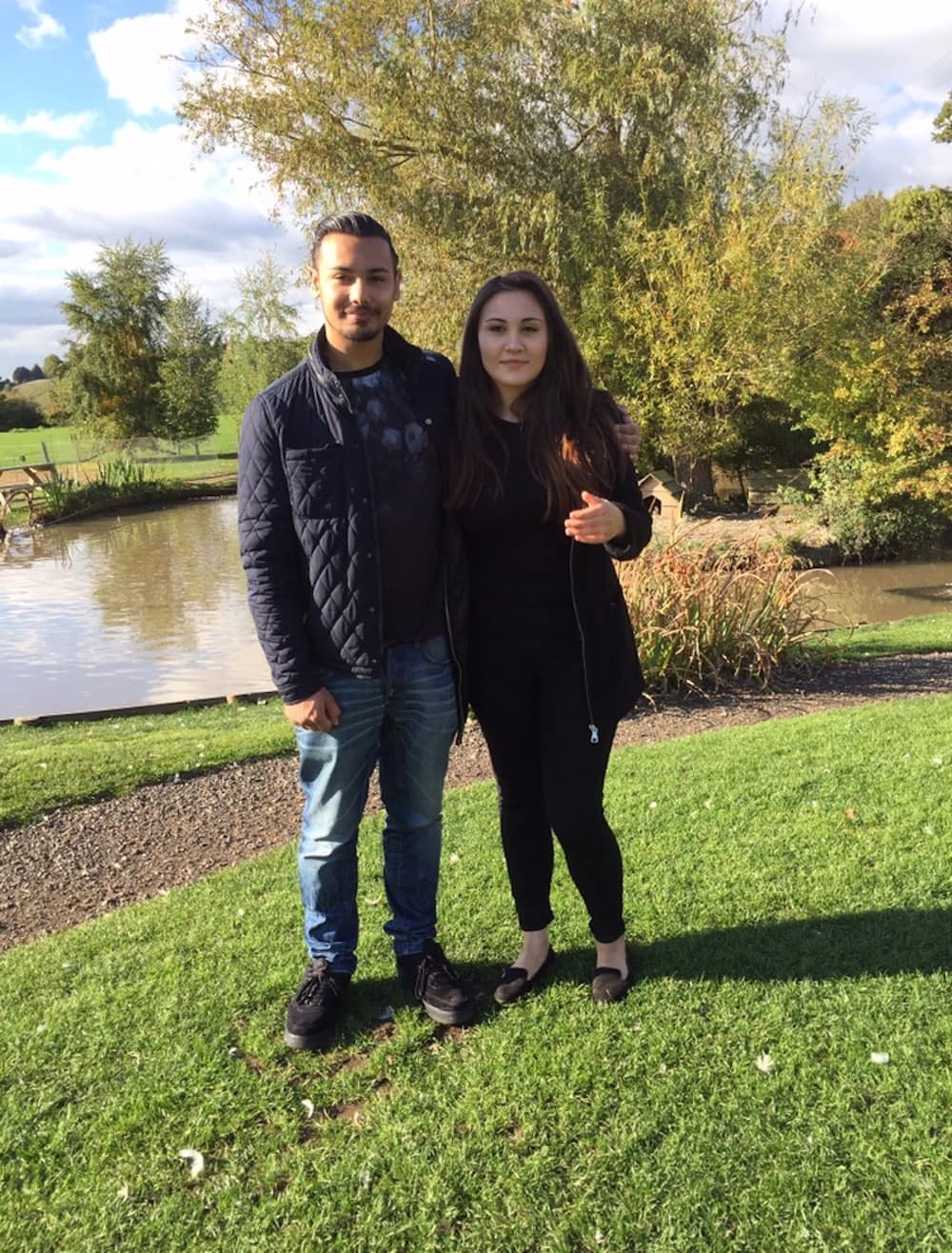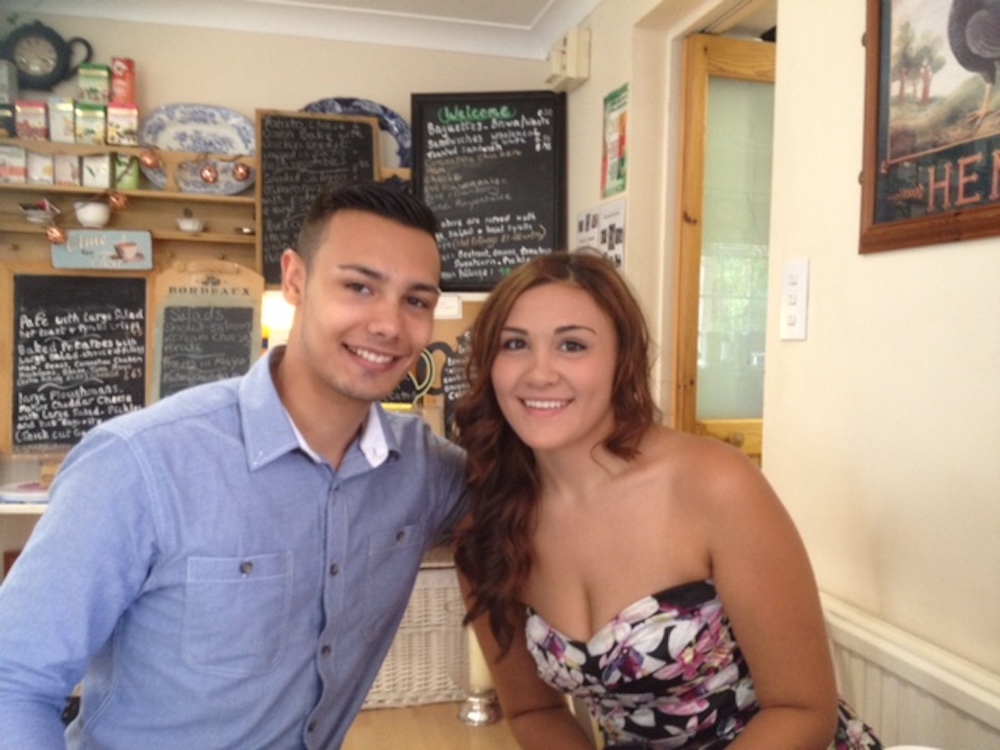
When Liz De Oliveira got the worst news imaginable, that her beloved daughter Lucy had taken her own life, she was living a never-ending nightmare. But Liz refuses to allow her daughter to have died in vain – she wants to speak out for all those affected by suicide, and change the narrative around mental illness
My heart sank as I approached my home; I had already received numerous missed calls from my son, Alexander, and the police car parked outside my house was not a good omen. The two officers took me hurriedly inside and told me that their visit was concerning my daughter Lucy, 22, who was studying to be a paediatric nurse at John Moores University in Liverpool. Their faces told me everything, so I just asked them point blank: “Is Lucy dead?”

Liz and her daughter Lucy
The female officer replied: “I am so sorry but yes – she killed herself in her student accommodation this evening.”
I felt my whole world implode. I could hear myself screaming – a primeval scream that seemed to come from the very bottom of my soul.
Lucy and her brother Alex, 26, were the centre of my universe. I had walked out of an unhappy marriage when Lucy was just two months old, and Alex was three. Life had not been easy for us; we were homeless so had to live in a hostel, and bringing up two very young children alone was a demanding, full-time role.
I was determined to set my children a positive role model though, so when Lucy was one, I enrolled at the local college to study law, and went on to gain a First Class Honours Degree at university. I spent another two years completing the gruelling training to qualify as a barrister – thank goodness for the invaluable support of my mother and friends in looking after the children.
Although money was tight, we were a very close family, and I ensured that we always spent quality time together – the housework was frequently ignored so that we could go out for adventures, paddling in streams, running up hills and taking picnics together in the woods.
Every parent thinks that their child is special, but Lucy truly was. From a young age her caring nature shone through, whether it was visiting our elderly neighbours for a chat or taking children who were targeted by the bullies under her wing. Lucy was a nurturing, caring girl who had time for everyone.
Aged just seven, she appeared on our front doorstep with another girl in tow, announcing: “This is Kathy, she’s eight and her mummy is dead and her daddy is on drugs.” I saw a poor mite of a girl standing in ragged clothes, her hair literally crawling with lice. Kathy became an unofficial member of our family, basically living with us for more than three years – all due to Lucy’s kindness and concern for others.

Alex and Lucy
Both Alex and Lucy grew into wonderful adults whom I was extremely proud of. It came as no surprise when Lucy became an apprentice youth worker, tirelessly helping young people with a variety of issues; she listened and imparted sound advice without ever being judgemental. It seemed a natural progression when she decided to train as a children’s nurse.
She was proud to be offered a place at four universities, and accepted an offer from John Moores University, in Liverpool, as it had strong connections with the world-renowned Alder Hey Children’s Hospital.
She moved up to Liverpool to start her degree, although she would visit regularly.
But I was worried that she was overdoing it as, in addition to having to study and her unpaid placement at Alder Hey, she also had to work part-time in order to fund herself through university – although I helped her out as much as I was able to.
Early on in her studies, she met a junior doctor on a night out and they became serious very quickly. Any free time she had seemed to be spent with him. They were talking about moving in together, marriage and children. Lucy thought she had her life mapped out.
Lucy was a nurturing, caring girl who had time for everyone
But in autumn 2016, at the start of the second year of her degree, Lucy called me, concerned about her health. She was having jerking movements – unexplained “tics” – and was due to see a specialist to discover what was causing them. She was particularly worried that while they were being investigated, the university said she could not continue with the practical element of her course.
She was frantic that she would fall behind in her degree. I tried to reassure her, she was extremely capable and her father and I would help her financially. She made me aware that the doctor had prescribed her antidepressants because of all the pressure she was under, but this didn’t set alarm bells ringing at the time.
The final blow came when her boyfriend decided to end their relationship. She was set adrift emotionally and financially, as he was working full-time and they had been sharing living expenses. Suddenly she found herself alone, back in her student accommodation and isolated because he had been the focus of her life for the past 18 months.

Alex and Lucy
She came home for the half-term holidays in February 2017, and I suggested that she stay at home while she sorted her health out, even if it meant deferring for a year. She was worried about the impact this might have on her funding and, after a long discussion, Lucy decided to give Liverpool one more go. If I had known how it would end, I would have never allowed her to return.
On the Sunday, I dropped her off at her friend’s house from where she was heading back to uni. While driving there, she remembered that she’d forgotten to pop in to see her nan but said she’d catch up with her the next time she was home. We chatted and laughed, and I reminded her not to leave any of her six bags anywhere on the journey home. She was forever losing her bags. She rolled her eyes at me and said: “Love you mom” and I said: “Love you Luce”. I never thought that would be the last time I would ever see her alive.
The next day, on the evening of 27 February 2017, she took her own life in her student accommodation. She left no note to tell us why. That’s when my world and that of all her family and friends fell apart. Everything went by as if in some kind of never-ending nightmare.
Alex examined her laptop and was horrified to find a suicide note dated some six months previously. It transpired that she had made an attempt in August 2016, but her then boyfriend had stopped her. It had never been reported to anyone. I’ve no doubt that Lucy probably begged him not to, yet I cannot help but wish I had known, so I could have spoken to her about how she was feeling.
She rolled her eyes at me and said: ‘Love you mom’ and I said: ‘Love you Luce’. I never thought that would be the last time I would ever see her alive
Lucy was one of the most kind, considerate and caring people you could imagine. I cannot let her death be in vain. I am determined to change the view that society holds about mental health. There is a huge stigma attached to it – when in reality many of us will suffer from some form of mental illness at some point in our lives.
To that end I agreed to participate in a BBC3-commissioned documentary called Death on Campus – Our Stories. It was an extremely difficult thing for us to do, however the response has been staggering. Literally thousands of people have been in touch with me either to confide that they have considered or indeed attempted to take their own lives, or that they have been personally affected by someone else doing so. Perhaps the most worrying trait of all is the age of some of the victims – children as young as 11 and 12 taking their own lives. As a society, we must question what is going so badly wrong when children of such tender years feel that their lives are not worth living.
Alex and Lucy
To anyone reading this who is suffering from depression or any other form of mental illness, please speak up. You are not alone. There is help out there – make sure you get it.
To anyone who may be concerned about someone’s mental health, please talk to
them and listen – ensure they get the appropriate help.
Lucy’s death is something so enormous and life-changing, from which myself and my family will never recover. I just hope that by telling our story it will bring about a much needed change in our attitude towards mental illness. A fitting legacy for my beautiful, caring and kind Lucy, who I was so proud to call my daughter.
Liz and her family’s world is turned upside down when her daughter takes her own life. Compassionate with a bright future, Lucy had been struggling with multiple challenges beating her down, and as Liz tries to come to terms with Lucy’s death, she recognises the stigma attached to suicide and mental health. Determined to ensure others would not suffer the same pain, she turns her focus to encouraging people start a conversation when they need help, or see someone who is in need.

Join 100,000+ subscribers
Stay in the loop with everything Happiful

